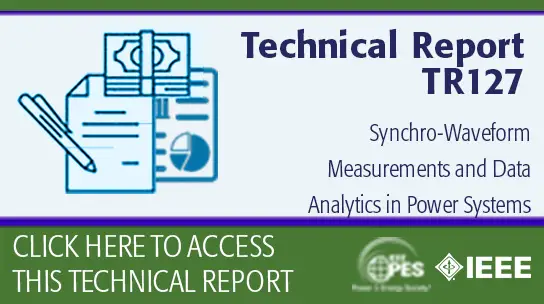Cyber-Physical Interdependency Modeling, Vulnerability Analysis and Mitigation for Power System Operation and Controls
* 21PESGM0080, Trustworthy and Resilient Cyberphysical Energy Systems: C. KONSTANTINOU, Florida State University * 21PESGM0081, Cyber-Physical Interdependency Modeling and Its Application to Improve Resilience: Q. GUO, Tsinghua University * 21PESGM0082, Cyber-physical lab testing in an electric utility environment: G. STEFOPOULOS, New York Power Authority (NYPA) * 21PESGM0083, The importance of communication for cyber-physical resilience in power systems: R. HOVSAPIAN, National Renewable Energy Laboratory (NREL) * 21PESGM0084, Deep-learning based Cyberattack Detection with Physical Verifications: F. TENG, Imperial College London
-
Members: $5.00PES
IEEE Members: $10.00
Non-members: $20.00Length: 01:46:54
28 Jul 2021
Our current power grid infrastructure is being transformed into a cyberphysical energy system that heavily rely on communications/computer technologies for sensing, protection, control, and real-time operation. The strong coupling between cyber components and physical operations increase system vulnerabilities to potential cyber-related adverse events (e.g., cyber-attacks, `silent errors' due to manufacturing variability failures, hardware or software faults of monitoring devices due to code bugs, etc.). As a result, the reliable operation of the power system is highly dependent on the reliability of the associated cyber system. On the other hand, the malfunction of physical system components can also induce adverse effects on the cyber system availability and reliability. Consequently, monitoring, operation, risk analysis, reliability evaluation, and stability control of power systems should consider the interdependence between cyber and physical systems. In this proposed panel, current state-of-the-art methods of modeling, vulnerability analysis and mitigation for power system operation and control will be presented. We will bring together experts from academia, national labs, and utilities and have them presenting their perspectives and works on the topic™s emerging needs. The panel is aimed at engineers, scientists, researchers, educators, students, industrial utility experts, and other stakeholders who are engaged in PES community, research and education.
Chairs:
Charalambos Konstantinou, Florida State UniversitySession, Junbo Zhao, Mississippi State University
Sponsor Committees:
(PSOPE) Bulk Power System Operations Subcommittee



